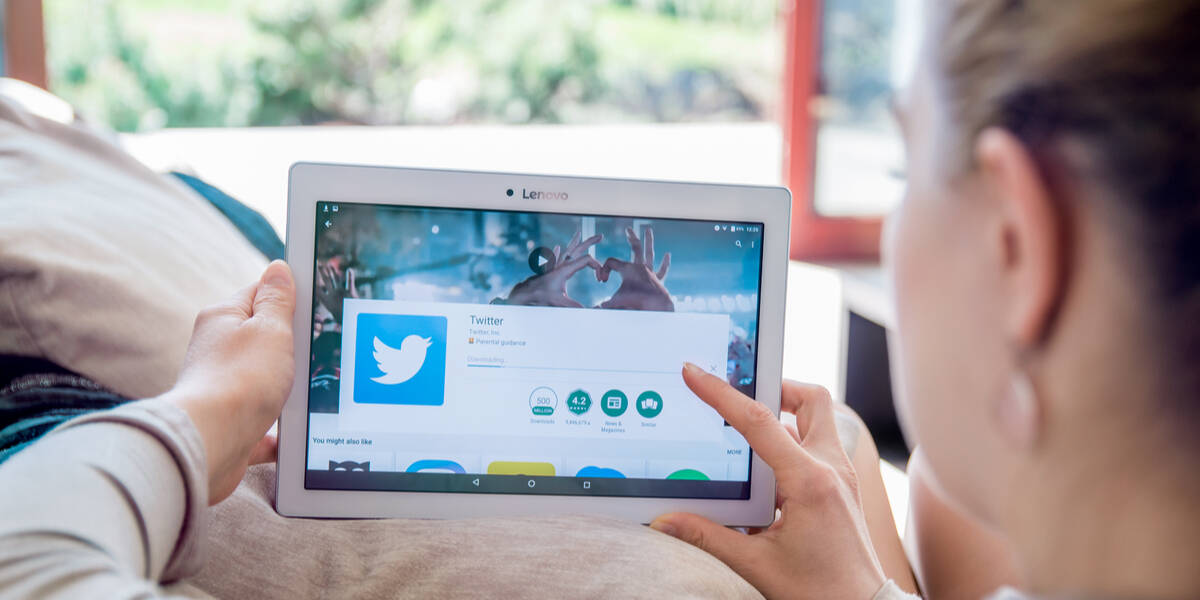Lenovo Pops Up Tips On Its Tablets. And By Tips, Lenovo Means: Unacceptable Ads

Lenovo has come under fire for the Tips application on its tablets, which has been likened to indelible adware that forces folks to view ads.
One customer took to the manufacturer's support forum late last month to say they were somewhat miffed to see an ad suddenly appear on screen to join Amazon Music on their Android-powered Lenovo Tab P11. The advertisement was generated as a push notification by the bundled Tips app.
“There is no option to dismiss," the fondleslab fondler sighed. "You have to click to find out more. Further, these notifications cannot be disabled, nor can the Lenovo ‘Tips’ app be disabled."
They went on to say: "This is not a tip. This is a push that is advertising a paid service. I loathe this sort of thing.”
Another chipped in: "I have a Lenovo Tab that also has this bloatware virus installed. There's no way to disable the adverts (they call the ads tips, they're not, they're adverts for Amazon music etc.) This is ridiculous, Lenovo, I didn't spend £170 on a tablet to be pumped with ads. Will not buy another Lenovo product."
On Wednesday, a support rep with the username Adriel_Lenovo admitted on the forum that the Tips app is now a permanent fixture. "The Lenovo Tips application cannot be disabled or removed off the Tab P11 since this is a pre installed app itself," the representative wrote, fueling people's frustration. The rep also said it "may" be possible to switch off the ads, sorry, notifications in the Android OS settings, though they didn't sound too sure.
In any case, on Friday a spokesperson for Lenovo told us:
That suggests to us the plug has been pulled on the Tip ads; we've asked Lenovo for explicit confirmation.
This is not the first time Lenovo has had a run-in with its customers about unwanted advertising. In 2015, Lenovo was hit with a barrage of complaints after it was caught shipping laptops with crapware that injected ads into owners' browsers.
Following that backlash, Lenovo agreed that new laptops would no longer be sold with the Superfish software and an update was issued to mute pop-up ads.
At the time, Lenovo's CTO Peter Hortensius told us: "Our goal, in the end, is to make this right," before admitting "it's going to take a long road to earn trust back."
Within days of customers kicking off back then, the hardware giant issued a further statement that it intended to mend its ways. "The events of last week reinforce the principle that customer experience, security and privacy must be our top priorities," the biz said.
"With this in mind, we will significantly reduce preloaded applications. Our goal is clear: to become the leader in providing cleaner, safer PCs."
Yeah, right. ®
From Chip War To Cloud War: The Next Frontier In Global Tech Competition
The global chip war, characterized by intense competition among nations and corporations for supremacy in semiconductor ... Read more
The High Stakes Of Tech Regulation: Security Risks And Market Dynamics
The influence of tech giants in the global economy continues to grow, raising crucial questions about how to balance sec... Read more
The Tyranny Of Instagram Interiors: Why It's Time To Break Free From Algorithm-Driven Aesthetics
Instagram has become a dominant force in shaping interior design trends, offering a seemingly endless stream of inspirat... Read more
The Data Crunch In AI: Strategies For Sustainability
Exploring solutions to the imminent exhaustion of internet data for AI training.As the artificial intelligence (AI) indu... Read more
Google Abandons Four-Year Effort To Remove Cookies From Chrome Browser
After four years of dedicated effort, Google has decided to abandon its plan to remove third-party cookies from its Chro... Read more
LinkedIn Embraces AI And Gamification To Drive User Engagement And Revenue
In an effort to tackle slowing revenue growth and enhance user engagement, LinkedIn is turning to artificial intelligenc... Read more

